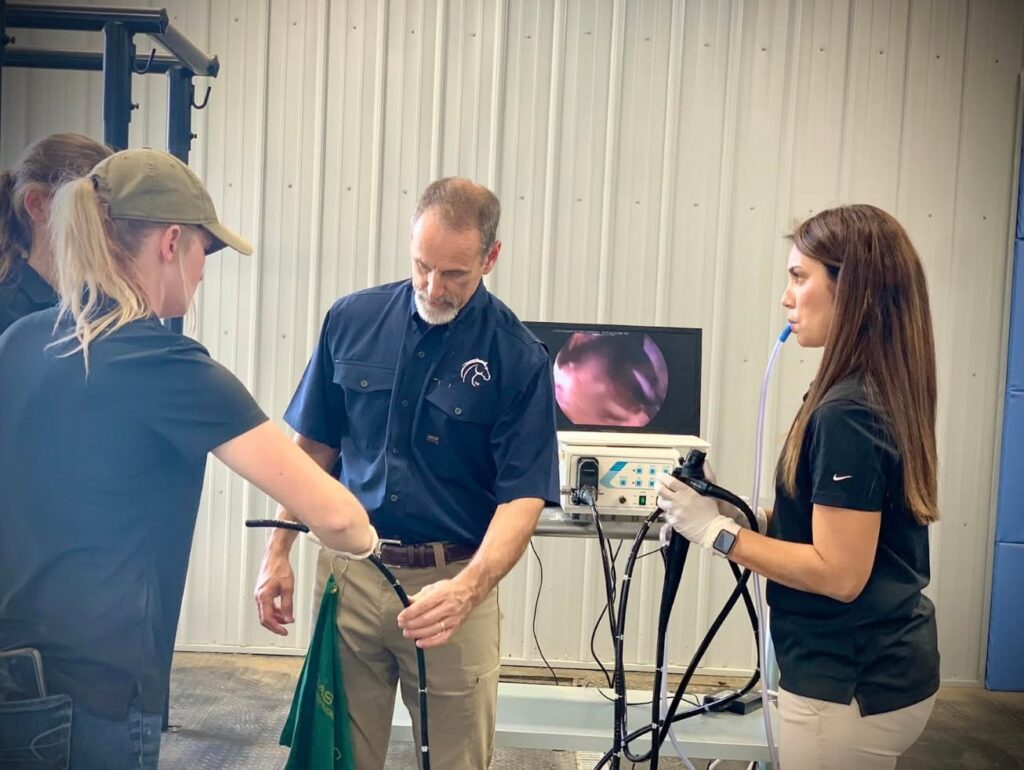
Research suggests that 𝟔𝟎-𝟕𝟎% 𝐨𝐟 𝐡𝐨𝐫𝐬𝐞𝐬 struggle with gastric ulcers. Left untreated, ulcers can lead to chronic discomfort, poor performance and long-term digestive issues.
𝐆𝐚𝐬𝐭𝐫𝐨𝐬𝐜𝐨𝐩𝐲 𝐞𝐱𝐚𝐦𝐬 𝐚𝐫𝐞 𝐭𝐡𝐞 𝐠𝐨𝐥𝐝 𝐬𝐭𝐚𝐧𝐝𝐚𝐫𝐝 for diagnosing equine gastric ulcers. In an ulcer clinic, we scoped 12 horses, and 10 were diagnosed with ulcers. These horses came from a variety of backgrounds including retired racehorses, performance horses and even pasture pets—proving that ulcers can affect any horse, regardless of breed or discipline.
𝐖𝐚𝐭𝐜𝐡 𝐟𝐨𝐫 𝐓𝐡𝐞𝐬𝐞 𝐒𝐢𝐠𝐧𝐬:![]() Unexplained weight loss
Unexplained weight loss![]() Irritability, attitude changes, or resistance under saddle
Irritability, attitude changes, or resistance under saddle![]() Poor performance or reluctance to move forward
Poor performance or reluctance to move forward![]() Girth sensitivity—discomfort when tightening the girth
Girth sensitivity—discomfort when tightening the girth
The only way to accurately diagnose gastric ulcers is through a gastroscopy exam, where we use a specialized camera to evaluate your horse’s stomach lining. Early detection leads to faster recovery and improved quality of life.

